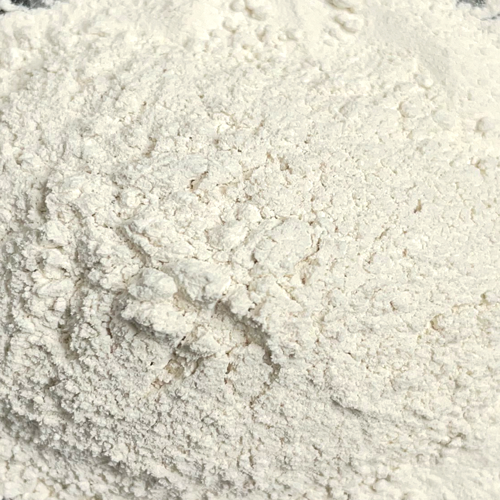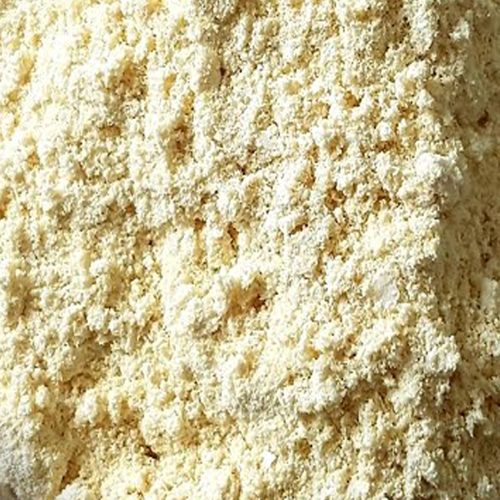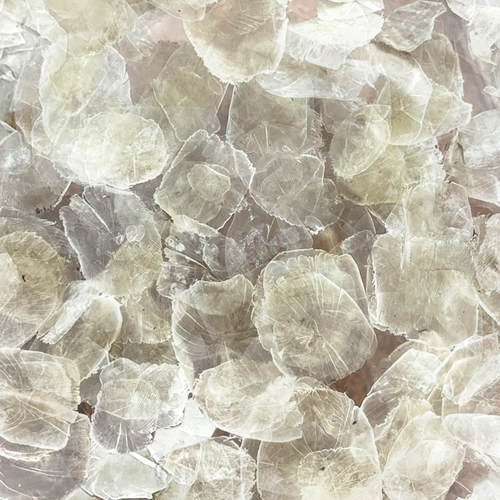Calcium Phosphate

We offer Calcium Phosphate derived from fish scales that can be used mainly in fertiliser application. Fish scales can be a source of calcium phosphate that can be used as a fertilizer due to its high nutrient content. Calcium and phosphate are essential plant nutrients that promote healthy plant growth, root development, and overall crop productivity. The use of calcium phosphate from fish scales as a fertilizer can improve soil fertility and increase crop yields, especially in areas where traditional fertilizers may be scarce or expensive.
To extract calcium phosphate from fish scales, several methods can be used, including acid extraction or hydrothermal treatment. The extracted calcium phosphate can then be processed further to make it suitable for use as a fertilizer.
The application of calcium phosphate from fish scales as a fertilizer can provide several benefits, including improved soil structure, increased water retention capacity, and enhanced plant nutrient uptake. In addition, the use of fish scale-based fertilizers can contribute to sustainable agricultural practices, which can have positive environmental impacts.
Calcium phosphate is an important nutrient that can provide several benefits when used as a fertilizer, such as:
1. Promoting root development: Calcium phosphate helps to promote strong and healthy root development in plants, which can improve their ability to uptake water and nutrients from the soil.
2. Improving plant growth: Calcium and phosphate are essential nutrients that are required for plant growth and development. The use of calcium phosphate as a fertilizer can provide plants with these important nutrients, which can result in improved growth and productivity.
3. Enhancing soil fertility: The application of calcium phosphate to soil can help to improve its fertility by providing essential nutrients that can support the growth of healthy plants.
4. Increasing crop yields: By providing essential nutrients that are required for plant growth, calcium phosphate can help to increase crop yields and improve overall agricultural productivity.
What is the difference between calcium phosphate derived from fish scales and bovine bones?
Both fish scales and bovine bones are natural sources of calcium phosphate, which is a mineral compound that provides structural support and rigidity to bones and teeth. However, there are some differences between calcium phosphate derived from fish scales and bovine bones.
1. Composition: The composition of calcium phosphate derived from fish scales and bovine bones may differ slightly. Fish scales are mainly composed of hydroxyapatite, a type of calcium phosphate, while bovine bones contain a mixture of hydroxyapatite and other types of calcium phosphate.
2. Purity: The purity of calcium phosphate may vary depending on the source. Fish scales are generally considered to be a more pure source of calcium phosphate compared to bovine bones, as they do not contain the organic matrix found in bone tissue.
3. Safety: There may be concerns over the safety of using calcium phosphate derived from bovine bones, as there is a risk of contamination with prions, which can cause diseases such as Bovine Spongiform Encephalopathy (BSE) in humans. Fish scales are considered to be a safer source of calcium phosphate as they do not carry the same risk of prion contamination.
4. Sustainability: Fish scales are a by-product of the fishing industry and using them as a source of calcium phosphate can reduce waste and provide an alternative to traditional sources of the mineral. Bovine bones, on the other hand, are often obtained from slaughterhouses, and using them as a source of calcium phosphate may raise ethical and environmental concerns.
In summary, both fish scales and bovine bones can provide calcium phosphate, but there are some differences in their composition, purity, safety, and sustainability that should be considered when choosing a source of the mineral.
Product Specifications:
| Source | Fish scales |
| Moisture | 4 to 5 % |
| Phosphorous(as P) | 14 to 16 % |
| Calcium (as Ca) | 28 to 30 % |
| Acid Insoluble(Silica) | 0.3 to 0.5 % |
| Fluorine | <0.01% |
Please note: We can customize certain parameters based on your requirement.



